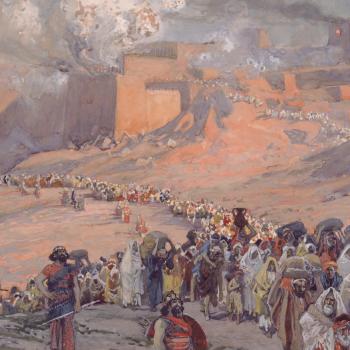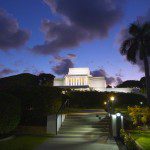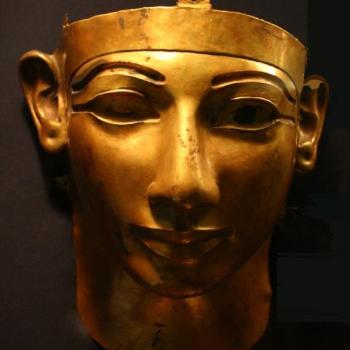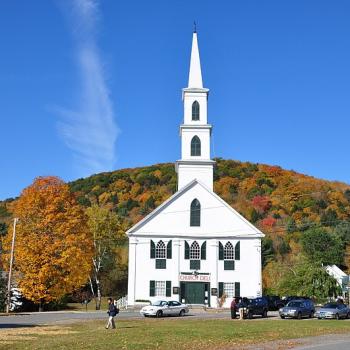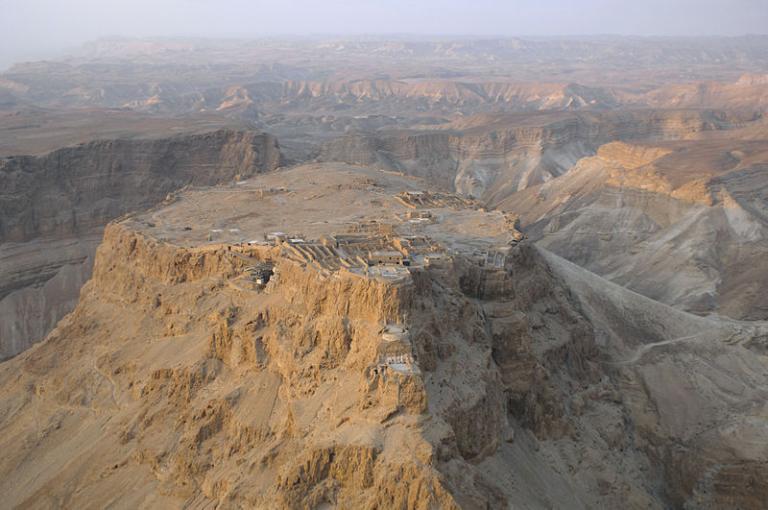
***
I’m a bit delinquent on reporting this, since my schedule here in Israel doesn’t lend itself especially well to regular blogging, but . . . The second of the Interpreter Foundation’s short-feature “reels” — produced in connection with the overall “Witnesses” film project — has now appeared online. It runs to slightly more than nine minutes in length:
Martin Harris was one of the earliest supporters of Joseph Smith and the Church. And yet, even after becoming one of the Three Witnesses of the Book of Mormon, he left the Church—though he returned many years later. Who was this wealthy farmer from upstate New York?
As I say, this is the second of our “reels.” The first appeared last Saturday:
From Book of Mormon scribe, to angelic visitations, and the Gold Plates, to leaving the Church—and eventually returning. Who was this scholar, lawyer, and early Church founder?
I’ve just previewed and approved the twenty-first of these “reels.” So there will be at least twenty-one of them. They will go up each and every Saturday, one at a time, for much of the rest of the year. We hope that you will enjoy them, and that you will find them helpful.
***
But, now, a reminiscence:
For the last three of the four years that my wife and I lived in Ma‘adi, south of Cairo, we lived in a multi-level apartment building directly adjacent to Cairo American College. The apartments above us occupied entire floors, and were rented by people with relatively cushy corporate or diplomatic positions. By contrast, ours shared the ground floor with another relatively small apartment (a bit larger than ours) and with a rather large entryway. Thus, it was too small to be of much interest to the market consisting of better-positioned foreigners, and we were able to get it at a comparatively low cost. It was much nicer than the apartment in which we had spent our first year.
The building had a bawwab, or doorkeeper, named Kamal. He was an illiterate peasant from the area of the Nile Delta, north of Cairo. (Cairo sits at the point where the Nile River branches out into its delta.)
We came to like Kamal very much. Unfortunately, he’s probably long dead by now: Like many Egyptians, and especially like many very poor ones (at least back then), he smoked several packs of cigarettes a day, and he had already developed a chronic and very deep cough.
For the moment, three memories about him:
First, for much of the time that we lived in that apartment, Kamal lived outside our window, literally in a very large cardboard box. During our last year or so, however, the owner of the building had a small but permanent one-room shack built — not much larger, really, than the box — for him to sleep in. It was finished in the same tan stucco that covered the building itself. I was pleased for Kamal and, when I next visited with our landlord to pay our rent, I complimented him on having provided our bawwab with a nicer place in which to live. He looked at me as if I were from another planet. He had built it, he explained rather coldly, because the cardboard box was ugly and he wanted his building and its surrounding area to look nicer. Plainly, Kamal himself, the human being, didn’t matter at all to him. I had never overly much liked the landlord; I liked him considerably less after that conversation.
Second, after some time living in our new apartment, my wife and I bought a cheap black-and-white television set so that I could listen to the news and to Arabic programming and so that we could have some evening entertainment at home. (Egyptian television sometimes even picked up American television series, and I still shudder to think what Egyptian audiences were learning about life in the United States from Dallas, which was broadcast just about every night during our last several months in the country.) When we left, we gave that television set to Kamal, so that he would have something to do while sitting out there alone at night. (We were also obliged to give him a letter certifying that it had been a gift, lest the police assume — since someone like him could never afford to buy a television — that he had stolen it.)
Third, Kamal was only permitted by our landlord to return to his wife and children in his small village perhaps once a month, for a couple of days. Maybe less often than that, actually. (He was rarely absent.) Once, when he went home, we loaned him our super cheap and super simple Kodak Instamatic camera after teaching him how to point, look through the viewfinder, and click. We also gave him a few rolls of film and taught him how to change them. When he returned, with lots of images of his family and the people in his village, we developed the film and gave the photos to him. But I’ve kicked myself for decades now that we didn’t make copies of those pictures. They’re the kind of images that we, as foreigners, could never, ever, have obtained. Our presence would have disturbed their normal routine. They wouldn’t have been natural. But those photos were taken by one of their own, a peasant like themselves, speaking their dialect, dressed like them. How I wish that we had copies of those photographs!
I’ve mentioned that Kamal had a recurrent deep cough that was presumably brought on by his smoking. (I expect that it has long since taken him away, since we knew him fully forty years ago.)
While living there, I read an article somewhere in the Egyptian or international press about a foreign aid plan for Egypt that was to include considerable American investment in the country. I was fine with that. But one of the pieces of that investment was to be a cigarette factory.
I was incensed. Not merely because I’m a Latter-day Saint who, for religious reasons, objects to smoking, but because I know what cigarettes do to the lungs and the general health of smokers. And because I saw too many Egyptians smoking. And, very particularly, because I heard Kamal’s cough every evening and figured that it was an evil omen for his future. Moreover, although Kamal didn’t make much money, he was the sole support of his wife and children, who lived hours away to the northeast in the Nile Delta. What percentage of his income went to his tobacco habit? And what would happen to his wife and kids, how would they cope, if and when he died?
I reasoned that it was probably, sadly, too late for Kamal. But the idea that the United States of America would be subsidizing the addiction to cigarettes of future Kamals didn’t sit at all well with me. Weren’t there more useful and beneficial things that American financing could provide for Egypt?
So I wrote to Joseph Califano, who was serving at the time as the Secretary of Health, Education, and Welfare in the cabinet of President Jimmy Carter. Secretary Califano was an outspoken critic of the tobacco industry and had actually launched a federal, national anti-smoking campaign for the first time in American history. I couldn’t imagine, if he was serious about his opposition to smoking, that he would be pleased with a plan to sponsor smoking for Egyptians.
I asked him whether he knew about this foreign policy proposal. Was the United States government only opposed to smoking by Americans? Was the attempt to spread smoking among poor Egyptians some sort of fiendish effort at Third World population control?
To my delight, I received a personal response from Secretary Califano, telling me that he had not heard of the plan but that he was very displeased at the information I had shared with him and that he would look into it.
The day that his response arrived, I felt that I had done at least something good, however small, for a country that was and is very important to me.
I never heard what came of our little exchange. But I also never heard about the construction of an American-sponsored cigarette factory in Egypt.
Posted from Ein Bokek, Israel



